Global Ocean Observing System
GOOS is a permanent global system for observations, modeling, and analysis of marine and ocean data.
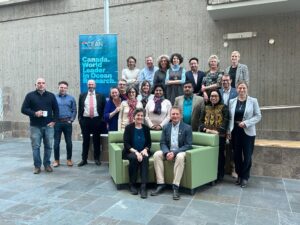
Progress, gaps and opportunities: 12th session of the GOOS Steering Committee
For the first time since 2019, the GOOS Steering Committee reunited in person for its 12th Session (GOOS SC-12) on 25-27 April, kindly hosted by the Ocean Frontier Institute, Halifax, Canada, to evaluate the progress in advancing the Global Ocean Observing System. The GOOS SC-12 assessed the challenges, opportunities and level of implementation under each […]
Read more »
Ocean information is saving lives in Indonesian coastal communities
In Indonesia, a country of more than 17,000 islands, brave fishers face dangerous conditions at sea every day. With the help of the Fisherman Weather Field School, a project under the UN Ocean Decade Observing Together programme, they are learning to use ocean information to protect themselves and even save lives in their communities. On […]
Read more »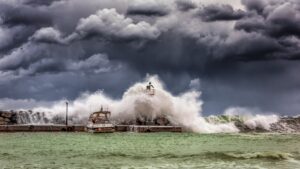
Tropical cyclones: Why we must observe the ocean to better protect people on land
Lessons learned from ocean observations during hurricanes Irene and Sandy pushed the U.S. to deploy a fleet of underwater robots during every hurricane season. As extreme weather events are becoming more frequent due to climate change, is it time to expand this hurricane forecasting capacity to other regions? 11 years after Hurricane Sandy hit the […]
Read more »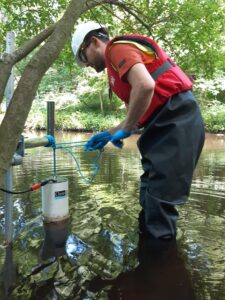
Public and private sectors to advance ocean observing
Until now, vital ocean observing activities that underpin human safety, marine health, blue economies and sustainable development have largely been managed by the scientific sector, and pillared on public projects. But today, private companies are stepping into the field with promising opportunities for a blue data revolution, and an alternative path for early career ocean […]
Read more »
A key component of marine ecosystems is changing together with our climate
Zooplankton, a key component of most marine ecosystems, are rapidly responding to climate change. A new paper shows how various species are affected, and highlights that coordinated, sustained ocean observations will be essential to understand how ecosystems will continue to function in our changing environment. Dr. Kim Bernard’s student, Giulia Wood, examining krill samples. Credit: […]
Read more »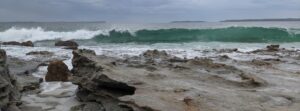
Streamlining ocean observing around the world: Ocean Best Practices
International experts are working together to improve the way we monitor the ocean through the development of Ocean Best Practices – common methods across ocean research, operations and applications that allow interoperability and reproducibility of ocean data and information. Our society relies on timely ocean information every day. Data coming from ocean observations underpins weather […]
Read more »Job announcement: Ocean Best Practices Data Information Management Consultant
DetailsPublished: 20 January 2023 The International Oceanographic Data and Information Exchange (IODE)and GOOS teams are seeking for an Ocean Best Practices Data Information Management Consultant. Under the supervision of IOC/GOOS, Emma Heslop, and IOC/IODE, Peter Pissierssens, the Individual Specialist will work within the context of the GOOS IODE Ocean Best Practices System (OBPS) and the EC Horizon 2020 projects EuroSea and […]
Read more »Request for Nominations – SOT Chairperson
The current Chairperson of the Ship Observations Team (SOT) has expressed his intent to step down from the position after the SOT-12 session in May 2023. Applications should be sent to Champika Gallage at the WMO Secretariat. Deadline: 1 May 2023. More details, including primary responsibilities of the SOT Chairperson, available below. SOT Chair / Vice Chair Nomination Process ● […]
Read more »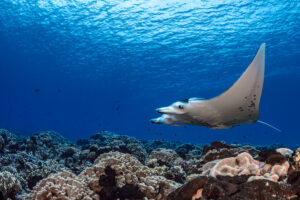
Biodiversity COP15 hails ambitious new global policy framework for preserving ocean life
On 19 December 2022, over 190 countries agreed on a historic framework for conserving global biodiversity at the 15th Conference of the Parties (COP15) of the Convention on Biological Diversity. The new framework identifies ambitious goals for addressing current challenges to managing and conserving biodiversity – terrestrial and marine – but to do this we […]
Read more »Vacancy notice: Chief of Section (Ocean Observations and Services)
The IOC/UNESCO Ocean Observations and Services Section is recruiting a scientific officer with expert and managerial experience, under full-time term contract, based in Paris, France. Under the authority and direct supervision of the Executive Secretary of the Intergovernmental Oceanographic Commission of UNESCO (Assistant Director-General, UNESCO), the incumbent will: Vacancy notice available on-line. Deadline for applications: […]
Read more »